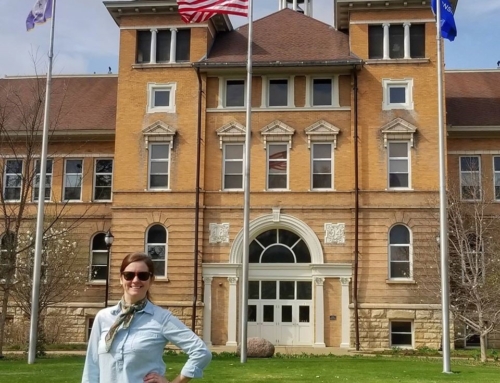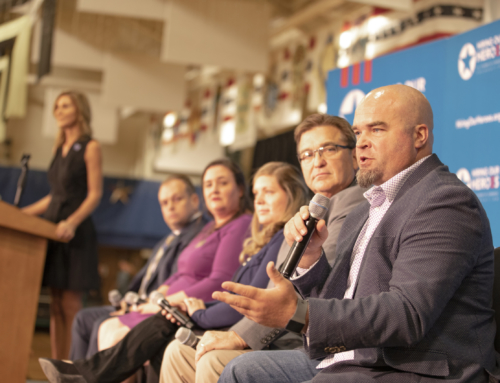With Wisconsin’s unemployment rate hovering just under 3%, employers on the hunt for qualified candidates are finding it more difficult than ever. Meanwhile, the unemployment rate for military spouses—an adaptable, highly educated and loyal workforce—is as high as 24% in some parts of the state. It’s a significant disconnect, but a new state initiative is working to eliminate it.
In June, Wisconsin was designated as a Military Spouse Economic Empowerment Zone(MSEEZ) as part of the U.S. Chamber of Commerce Hiring our Heroes program. Wisconsin joins roughly a dozen other states and metro areas working to identify opportunities and barriers to military spouses seeking meaningful employment.
Wisconsin is the first MSEEZ to reach beyond active duty military and focus on the spouses of Reserve and National Guard members. Whether active or reserve, however, many of the issues faced by spouses looking for employment are the same, according to Carolyn Moe, talent community manager at Logistics Health Incorporated (LHI) in La Crosse.
Starting with communication and pride
Moe heads the Wisconsin MSEEZ working group’s hiring subcommittee, which is focused on connecting with military-friendly employers, educating employers on why military spouses make good employees, and providing recruiters and HR managers with tools for making their organizations more military-friendly.
Moe says the first step is educating businesses on the hurdles military spouses face when looking for work. Thanks to frequent moves and schedules impacted by deployments, the resumes of military spouses are often filled with short-term positions and large gaps in employment, things HR managers often read as signs of unreliability. Online job search sites often filter these “spotty” resumes out before they can even reach potential employers.
Adding to this is the fear of stigma that makes candidates hesitant to identify themselves as a military spouse. Employers need to do a better job of fostering open communication, says military spouse Erin Lange, an LHI senior business analyst and Marine Corps veteran. Both she and Moe say communication has been the key to LHI’s success as a military-friendly employer.
“It’s about making them feel comfortable, honoring their role as a military spouse, and letting them be proud of that,” Moe says. “If employers show they truly understand what the spouse is going through, it makes those employees even more loyal.”
For LHI, that means flexible scheduling, or the ability to telecommute if an employee must move because a spouse is being stationed somewhere else. It’s understanding that the lines between work life and home life sometimes blur, with coworkers offering help at home or personal calls from a deployed spouse happening during office hours.
A collaborative effort
Moe and Lange emphasize that anyone is welcome to join the Wisconsin MSEEZ working groups, which they characterize as primarily focused on awareness. They invite employers, military, military spouses and other supporters to join the “HOH – MSEEZ Working Group” on LinkedIn or contact them directly. The group meets virtually once a month; although their next quarterly in-person meeting in Madison isn’t until September, Lange already sees signs of progress.
“At our first meeting, companies were already looking for ways to work together,” Lange says. “For example, if they interview someone and realize that candidate isn’t a good fit for them, they can still reach out and recommend that candidate to another company.”
Long term, Moe would like to see the state move toward full licensure reciprocity in order to remove a big barrier to employment for military spouses in professions that require state licensure, such as teaching, law or nursing.
For a stronger Wisconsin
Though its goal is to connect military spouses with meaningful work, the MSEEZ initiative also benefits the state. Being a welcoming place for military families keeps skilled, dependable workers in our communities, and attracts those who are looking to put down roots once they transition to civilian life.
Military veterans, Reserve and Guard members and their families looking for career and educational opportunities in Wisconsin are encouraged to visit InWisconsin.com/veterans.









FOLLOW US